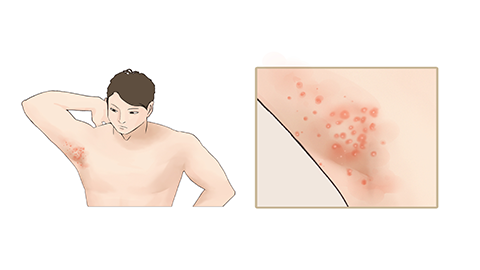Is body odor hereditary?
Generally, axillary osmidrosis (body odor) has a certain hereditary tendency. Detailed analysis is as follows:

If either or both parents suffer from axillary osmidrosis, the probability of their children developing this condition will be higher than in the general population. This hereditary characteristic is related to the secretory function of apocrine glands in the human body. Genetic factors may influence the development of apocrine glands and the composition of sweat, making individuals more prone to develop a distinct odor when bacteria on the skin break down their sweat. Not all individuals who carry these genetic factors will exhibit symptoms, and the severity of symptoms may vary due to individual physical conditions, living environments, and other factors.
Daily care should focus on maintaining body hygiene, especially under the armpits. Frequent bathing and changing clothes can reduce bacterial growth. Choosing breathable fabrics such as cotton helps sweat evaporate, thereby lowering odor intensity. Avoid staying in hot and humid environments for prolonged periods to reduce excessive sweating. In terms of diet, it is advisable to limit intake of spicy and irritating foods to prevent exacerbation of body odor.




